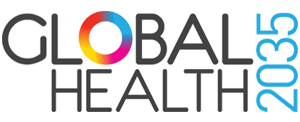The Swedish Expert Group for Aid Studies (Expertgruppen för Biståndsanalys, or EBA) invited a key group from the Commission on Investing in Health's report team to review Swedish development assistance for health in order to propose options that could enable Sweden to align its health aid with emerging needs and priorities and to potentially set an example for other donor organizations. The Swedish Expert Group for Aid Studies is a government committee with a mandate to evaluate and analyze Sweden's international development assistance.
The report, "Sweden's Development Assistance for Health – Policy Options to Support the Global Health 2035 Goals", was published in November 2014. It is co-authored by Gavin Yamey and Dean Jamison at the University of California, San Francisco, Helen Saxenian and Robert Hecht at Results for Development, Washington, and Jesper Sundewall from the Expert Group for Aid Studies.
The analysis, a "policy options" paper, is intended to stimulate discussion and debate, rather than to be a prescriptive document for what Sweden should do or not.
The analysis has 7 key messages:
- Classifying development assistance for health by its functions helps to articulate the roles of health aid in the post-2015 era;
- Swedish bilateral development assistance for health and multilateral development assistance for health mostly target local functions;
- Economic growth means some countries may graduate from Swedish development assistance for health by 2035;
- There are likely to be five key global health challenges for the period 2015-2035;
- Sweden can play a key role in tackling these challenges, given its impacts and strengths in global health;
- Significant additional Swedish development assistance for health is likely to be available from 2015 to 2035;
- Investing this additional Swedish development assistance for health in specific functions could help reach the Global Health 2035 goals.
In November 2014, CIH Commissioner Gavin Yamey presented the report's key findings in Stockholm with Jesper Sundewall, in the seminar, "How Can Swedish Development Aid Contribute to a Grand Convergence in Global Health by 2035?". Other speakers included Ulrika Modéer, Swedish State Secretary for International Development Cooperation; Sigrun Møgedal, MD, Special Advisor at the Norwegian Knowledge Centre for the Health Services; Anders Molin, MD, Senior Policy Advisor for Health, Swedish International Development Cooperation Agency; Julia Schalk, Member of the EBA, Policy Advisor, the Swedish Association for Sexuality Education; and Pia Schneider, Lead Evaluator, Social Sector, IEG, World Bank. A full program and presentation materials are available online.
This analysis is being further developed to examine Swedish DAH through a new classification framework that categorizes health aid by core and supportive functions. This framework is intended to compliment other categorizations of aid to help policymakers identify how they can best invest in health to achieve the goals of Global Health 2035.
In March 2015, a core group presented on Global Health 2035, policy options for Swedish aid, and initial findings from the new DAH classification at the Swedish International Development Cooperation Agency (Sida). Commissioners Gavin Yamey and Helen Saxenian, with Hester Kuipers from IAVI, led a morning briefing on Sweden’s options to support Global Health 2035 goals, findings related to financing and poverty, and the role of research and development. In the afternoon, Gavin Yamey and Marco Schäferhoff (SEEK Development) presented the new framework to analyze development assistance for health and initial findings on Swedish aid. Slides are available from both of these Swedish DAH presentations.
